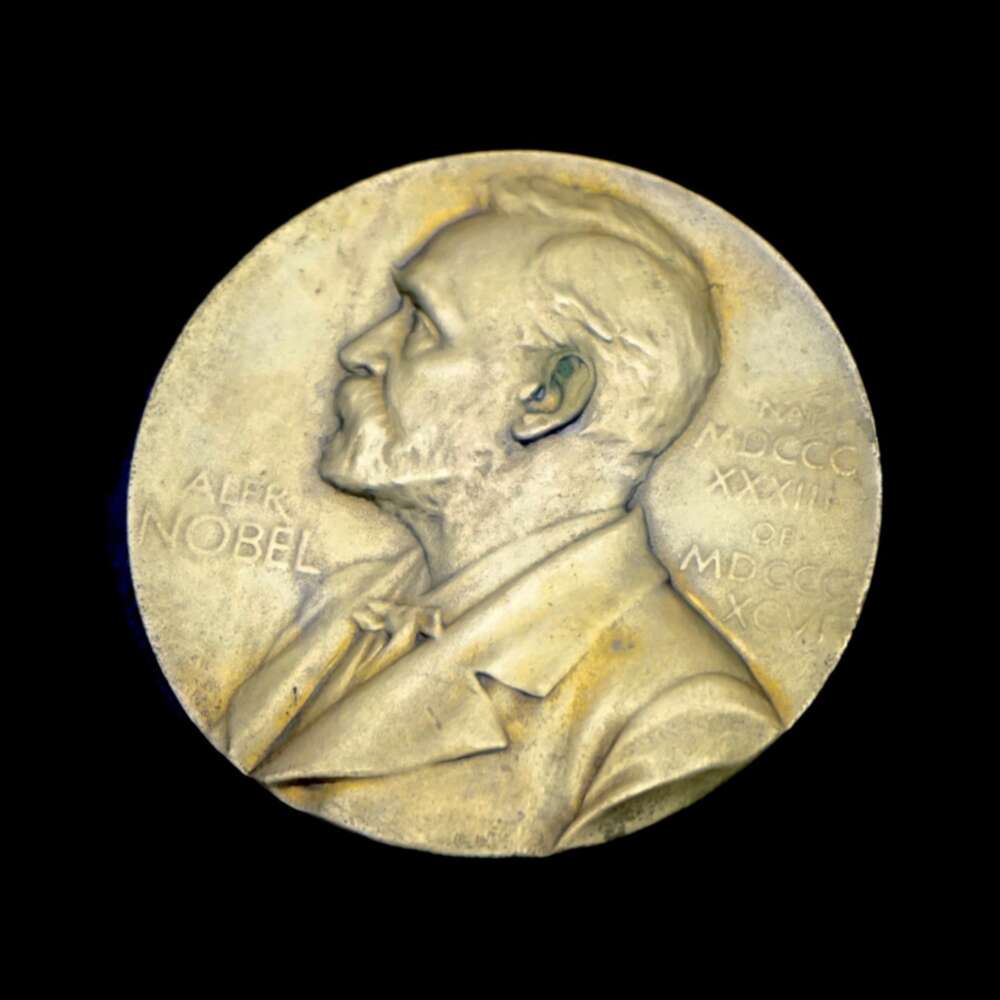-
Nobel Prizes Academy will not introduce gender or ethnicity quotas

The BBC reported, the head of the academy that awards the Nobel Prizes in science has said it will not introduce gender quotas.
Goran Hansson, head of the Royal Swedish Academy of Sciences, said they want people to win "because they made the most important discovery... not because of gender or ethnicity".
The BBC said that since its inception in 1901, only 59 Nobel Prizes have gone to women.
It mentioned that Maria Ressa, the only woman honoured this year, shared the Nobel Peace Prize with fellow journalist Dmitry Muratov.
The pair won the prize for their "efforts to safeguard freedom of expression" in their respective countries, the Philippines and Russia.
Mr Hansson told the AFP news agency: "It's sad that there are so few women Nobel laureates and it reflects the unfair conditions in society, particularly in years past, but still existing. And there's so much more to do."

"We have decided we will not have quotas for gender or ethnicity," he said, adding that the decision was "in line with the spirit of Alfred Nobel's last will".
Swedish industrialist and chemist Alfred Nobel founded the prizes in his will, written in 1895 - a year before his death.
Read more: Turkish young people look for ways out amid rising unemployment rate
He said: "In the end, we will give the prize to those who are found the most worthy, those who have made the most important contributions."
And while more women are being recognised now compared to previous decades, Mr Hansson said, that number was increasing "from a very low level".
He said: "Keep in mind that only about 10% of the professors in natural sciences in western Europe or North America are women, and even lower if you go to East Asia."
However, the scientist said they would "make sure that we have an increasing portion of women scientists being invited to nominate, and we will continue to make sure we have women on our committees - but we need help, and society needs to help here".
He added: "We need different attitudes to women going into sciences... so that they get a chance to make these discoveries that are being awarded."
Last year, scientists Emmanuelle Charpentier and Jennifer Doudna became the first two women to share the honour when they were awarded the Nobel Prize in Chemistry for developing the tools to edit DNA.
It was the first time any of the science prizes had been awarded to two women without a male collaborator also listed on the award.
Read more: Tunisian PM Najla Bouden announces lineup of her government
At the time, Prof Charpentier said: "I wish that this will provide a positive message specifically for young girls who would like to follow the path of science... and to show them that women in science can also have an impact with the research they are performing."
She added that there was "a clear lack of interest in following a scientific path, which is very worrying".
Other notable women to have won the award include child education activist Malala Yousafzai, who was jointly awarded the Peace prize in 2014; virologist Françoise Barré-Sinoussi, who discovered HIV and was awarded the Nobel Prize in Physiology or Medicine in 2008; and Toni Morrison, whose work explored the harsh realities of racism in the US, won the Nobel Prize for Literature in 1993.
Marie Curie was the first woman to win the Nobel Prize, winning the Physics award in 1903. She was also the first person, and remains the only woman, to have won multiple Nobel Prizes, after winning the Nobel Prize in Chemistry in 1911.
Source: BBC
You May Also Like
Popular Posts
Caricature
BENEFIT Sponsors BuildHer...
- April 23, 2025
BENEFIT, the Kingdom’s innovator and leading company in Fintech and electronic financial transactions service, has sponsored the BuildHer CityHack 2025 Hackathon, a two-day event spearheaded by the College of Engineering and Technology at the Royal University for Women (RUW).
Aimed at secondary school students, the event brought together a distinguished group of academic professionals and technology experts to mentor and inspire young participants.
More than 100 high school students from across the Kingdom of Bahrain took part in the hackathon, which featured an intensive programme of training workshops and hands-on sessions. These activities were tailored to enhance participants’ critical thinking, collaborative problem-solving, and team-building capabilities, while also encouraging the development of practical and sustainable solutions to contemporary challenges using modern technological tools.
BENEFIT’s Chief Executive Mr. Abdulwahed AlJanahi, commented: “Our support for this educational hackathon reflects our long-term strategic vision to nurture the talents of emerging national youth and empower the next generation of accomplished female leaders in technology. By fostering creativity and innovation, we aim to contribute meaningfully to Bahrain’s comprehensive development goals and align with the aspirations outlined in the Kingdom’s Vision 2030—an ambition in which BENEFIT plays a central role.”
Professor Riyadh Yousif Hamzah, President of the Royal University for Women, commented: “This initiative reflects our commitment to advancing women in STEM fields. We're cultivating a generation of creative, solution-driven female leaders who will drive national development. Our partnership with BENEFIT exemplifies the powerful synergy between academia and private sector in supporting educational innovation.”
Hanan Abdulla Hasan, Senior Manager, PR & Communication at BENEFIT, said: “We are honoured to collaborate with RUW in supporting this remarkable technology-focused event. It highlights our commitment to social responsibility, and our ongoing efforts to enhance the digital and innovation capabilities of young Bahraini women and foster their ability to harness technological tools in the service of a smarter, more sustainable future.”
For his part, Dr. Humam ElAgha, Acting Dean of the College of Engineering and Technology at the University, said: “BuildHer CityHack 2025 embodies our hands-on approach to education. By tackling real-world problems through creative thinking and sustainable solutions, we're preparing women to thrive in the knowledge economy – a cornerstone of the University's vision.”
opinion
Report
ads
Newsletter
Subscribe to our mailing list to get the new updates!






















